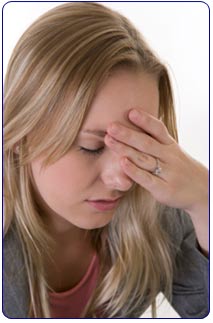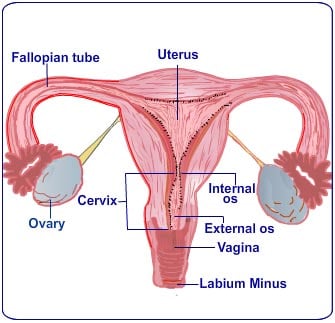- Premenstrual Syndrome - (http://www.nlm.nih.gov/medlineplus/premenstrualsyndrome.html)
- Premenstrual Syndrome (PMS) - (http://www.emedicinehealth.com/premenstrual_syndrome_pms/article_em.htm)
- About Premenstrual Syndrome (PMS) - (http://www.medicinenet.com/premenstrual_syndrome/page2.htm)
About
Premenstrual Syndrome or PMS was formally recognized by the medical community in 1953. PMS is characterized by a range of physical and emotional symptoms which usually manifest one to two weeks before the onset of the menstrual periods, and disappear after the periods begin.
"Women complain about PMS, but I think of it as the only time of the month when I can be myself" - Roseanne Barr, American Television Host
Premenstrual syndrome or PMS is a medical condition affecting nearly 80% of women during the childbearing age (puberty to menopause).
The actual reasons behind PMS are still unclear, though causes point towards hormonal fluctuations - oestrogen and progesterone during the menstruation cycle or due to low levels of a chemical called serotonin in the brain. that is in charge of mood and behavior.
Lifestyle, diet, and stress are also thought to have a role in triggering PMS.
Symptoms are either physical or psychological or a combination of both. Mood swings, depression, irritation with a feeling of water retention and fatigue are the main symptoms of PMS.


The diagnosis is established by history. There is no known cure for PMS. Treatment is aimed at alleviating the symptoms of PMS. A combination of lifestyle changes, diet and exercise is recommended to help victims cope with the condition. In severe cases, medication may be employed to alleviate the symptoms.
Premenstrual Dysphoric disorder (PMDD), a severe condition plaguing as many as 3-8% of women causes them to experience chronic PMS symptoms for weeks before the onset of the menstrual cycle. Victims of PMDD are prescribed medication to reduce the intensity of symptoms, unlike PMS, where symptoms are milder and for a short duration.










